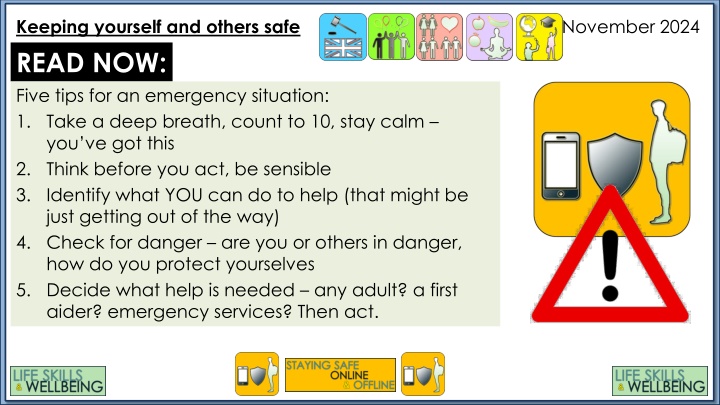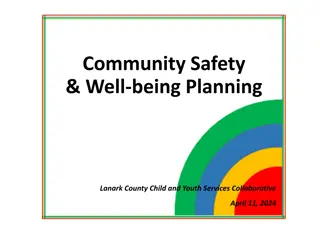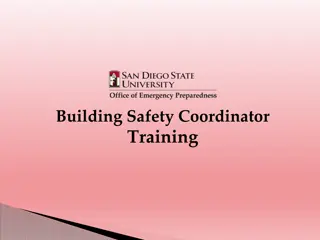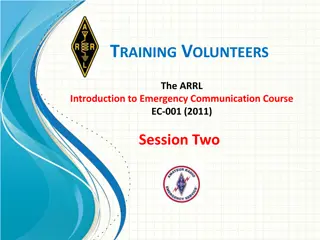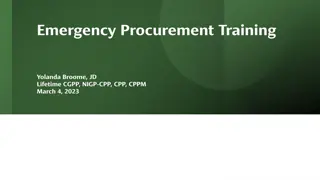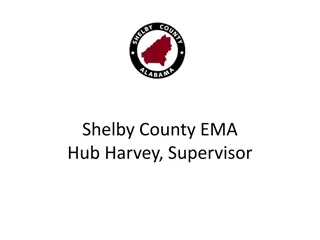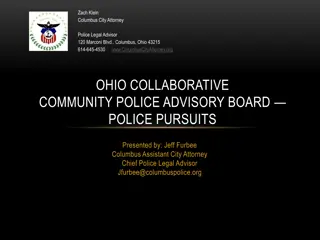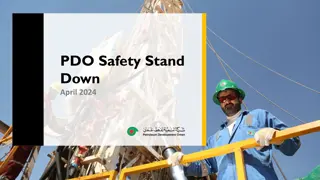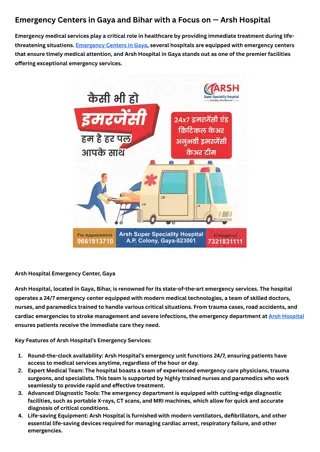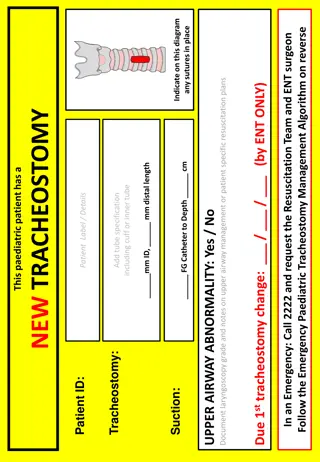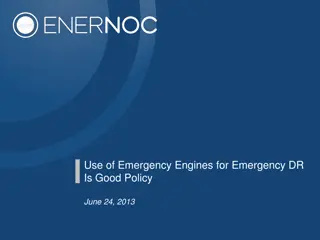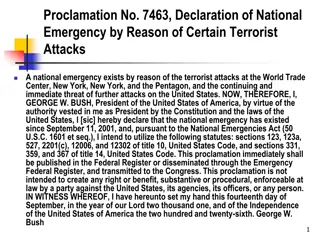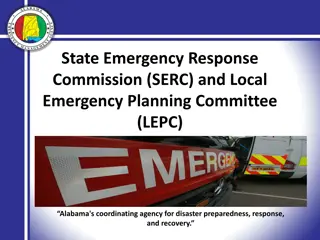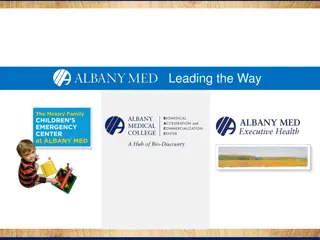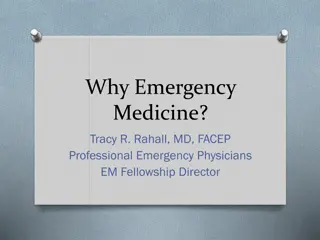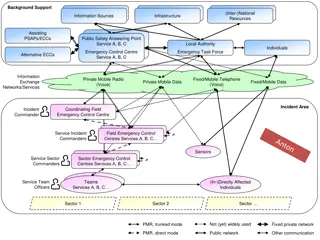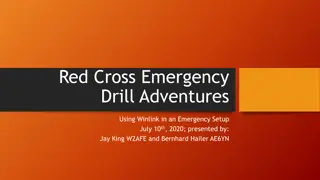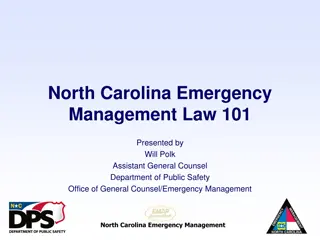Safety Tips for Emergency Situations and Community Awareness
Learn five essential tips for handling emergency situations with calmness and sensibility. Explore guidelines for staying safe in the community, including road safety and using digital devices responsibly. Discover services available for non-emergency concerns and contacts for help when needed.
Download Presentation

Please find below an Image/Link to download the presentation.
The content on the website is provided AS IS for your information and personal use only. It may not be sold, licensed, or shared on other websites without obtaining consent from the author.If you encounter any issues during the download, it is possible that the publisher has removed the file from their server.
You are allowed to download the files provided on this website for personal or commercial use, subject to the condition that they are used lawfully. All files are the property of their respective owners.
The content on the website is provided AS IS for your information and personal use only. It may not be sold, licensed, or shared on other websites without obtaining consent from the author.
E N D
Presentation Transcript
Keeping yourself and others safe 13 November 2024 READ NOW: Five tips for an emergency situation: 1. Take a deep breath, count to 10, stay calm you ve got this 2. Think before you act, be sensible 3. Identify what YOU can do to help (that might be just getting out of the way) 4. Check for danger are you or others in danger, how do you protect yourselves 5. Decide what help is needed any adult? a first aider? emergency services? Then act.
COVID-19 (Corona virus) At the moment, schools in the UK are closing for the majority of students and the Government are planning on keeping it this way for a while with the exception of Key workers children and those on Educational Healthcare Plans*a few others too. However, we want you to be prepared as schools close because we want you to be safe. Today, we are going to think about - safety in the community and what to do in an emergency. Please don t worry or panic. This is just a precaution.
Staying safe in the community Ask permission before going out. Tell your parents where you re going, when you ll be back, who you ll be with. Be home on time. If something goes wrong call to say you ll be a bit late and why. Take your MOBILE phone and answer it! Don t just hang around on the streets. Only go out if you have a reason and a place to go. Crossing the road more young people die crossing the road than any other group look up from your phone, take out your earphones and be careful! In shops and on public transport try not to go alone, but if you need to be aware of what to do if something goes wrong. (Talk to staff/bus driver) Know how and when to call 999.
Staying safe online It s nice to use phones/the internet to keep in touch, but remember: Take care with what you post remember once it s out there, it s out there there s no taking it back. Playing computer games online be aware of who you re speaking to and what you re saying. If anyone says something unkind, upsetting or threatening block them and tell an adult. Do not share your details with anyone this includes your phone number, your address, your passwords, your school etc. Don t spend too much time online it isn t good for your physical or mental health.
Services that can help you If you are concerned about something, but it isn t an emergency where you should dial 999, what could you do? If you or a friend is in danger from adults or one another you can call Surrey children s services 01483 517898 (day time) or Surrey County Councils Safeguarding Hub 0300 470 9100 (Day time) Non-emergency police 101(e.g. if something has been stolen, if you have witnessed a crime, you have a concern that isn t an emergency) If you want to talk to someone anonymously because you are worried about something or something/one is upsetting you, you can call Childline 08001111 To contact the school (Ms Mundy) you can call, text, or WhatsApp on the school mobile _____________. we will share the number with you in form time.
Safety plans It might be useful to discuss with an adult at home having a safety plan in case of emergencies. What could this include? Who to contact in an emergency If the adult in charge suddenly falls ill, who is nearby and could get to you quickly? (Family members, friends, neighbours etc.) What to do if you feel worried about something (who can you speak to for reassurance or help) What to do if you feel unwell plan for if an adult is present and if you are on your own Think about what you learned yesterday about H&S at home
